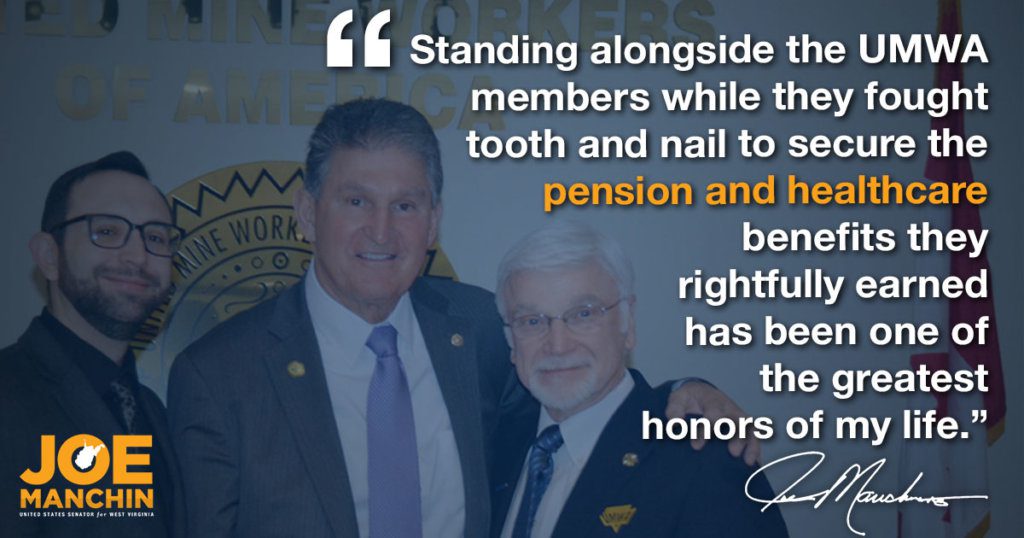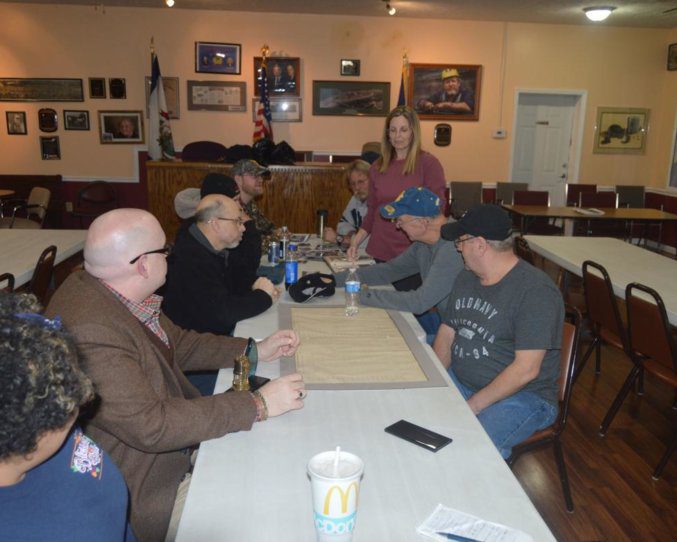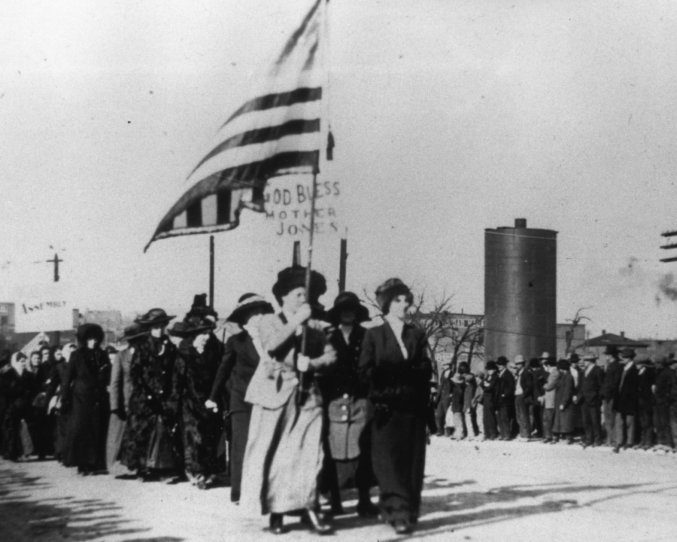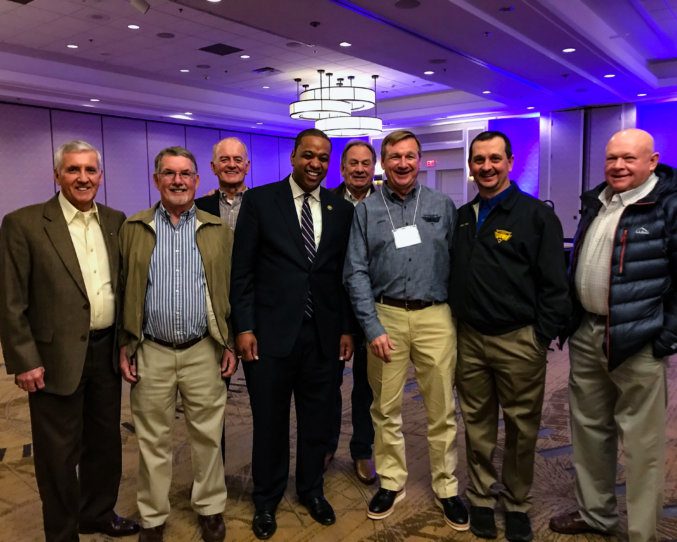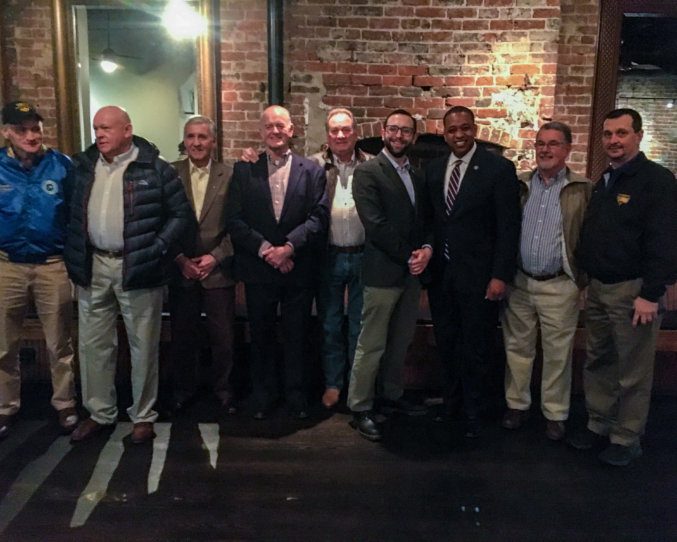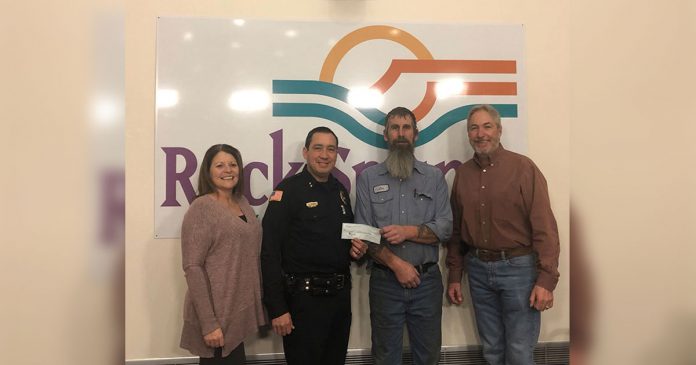Source: Pittsburgh Current
“It’s my love of what I do, my love of where I come from, and love for where I’ve found myself, with some of these people I’ve met.”
There’s a prayer that Tom Breiding used to say as a child. He’s forgotten most of it now, but one line remains in his mind: “Love commits me here.”
He chose that line as the title to his 14th album, which he released earlier this month. It shows up in the title track, which pays tribute to the love shared between his parents, while also mourning the hatred and violence of our world. And it finds its way on to “Fannie Sellins,” which tells the story of the union organizer who was murdered in 1919. “An angel of mercy, a guardian dear.” Breiding sings gently, in true and stirring admiration of a martyred hero. “A battle for freedom and love committed her here.”
That song was written to be performed at Sellins’ grave site in Arnold, PA on the 100th anniversary of her death. Breiding had already written around the phrase by then, but when he started writing about Sellins, he recalls, “That line was perfect: Love committed her here.”
“Love is such a positive word to use anyway, and it means a lot of things,” Breiding says over coffee at Kaibur in Polish Hill a few months ago. “It’s my love of what I do, my love of where I come from, and love for where I’ve found myself, with some of these people I’ve met.”
In other words, Breiding’s music — and his life — has developed into its own act of commitment by love.
Part of that commitment is to telling the story of the American labor movement. As the artist- in-residence for the United Mine Workers of America, Breiding provides music for union rallies, among other things. In 2016 he played for an audience of 10 thousand as part of an event petitioning the U.S. government to fulfill its promise of cradle-to-grave healthcare for America’s coal workers.
Though he’s been declared “the greatest labor singer in the United States today” by UMWA president Cecil Roberts, Breiding is careful not to overstate his role. “There’s no way I’d ever want to inflate that or take credit where it’s not due,” he says. But, he allows, music can be a potent aid to political struggle. “The songs that I wrote were written directly for the cause, in some cases calling out CEOs by name, and it’s a powerful thing,” he says. It really stirs the emotions. It certainly made the rallies more colorful and successful.”
Breiding didn’t come from a union family, and never considered himself particularly political growing up. But music was a big part of his West Virginia childhood. “[My mother] loved to dance, she would sing to us,” he says. Music was always playing in the house, and in the car. Breiding particularly connected with the music he heard on A.M. radio in the ’70s. “There were these incredible storytellers writing songs and ballads, people like Jim Croce, or even simple hits like “The Lights Went Out in Georgia” he says. “I was drawn to that storytelling aspect.” When he started seriously pursuing songwriting, he turned to the big three of heartland rock — Tom Petty, Bruce Springsteen and John Melloncamp — for inspiration.
True to his influences, Breiding wrote story-driven, folk-based rock about his surroundings. But over time, “I had kind of exhausted the themes of things that came naturally to me, writing about the rivers and the hills and the railroads and the steel mills and the blue collar people,” he says. He then turned to the history of the coal miners. “My research pointed me to this incredible history that I knew very little about. And i just started writing songs about these events and before I knew it, I realized, ‘I’m actually telling the history of the United Mine Workers.’”
In August of 2018, Breiding was commissioned by the UMWA to write a song in commemoration of the 1968 Farmington Mine Disaster, a West Virginia mine explosion that killed 78. The song, “Farmington No. 9,” which opens Love Commits Me Here, is a testament to Breiding’s powers as a songwriter. He presents an unthinkably tragic story simply, carefully, without sensationalizing, and but with an emotional urgency that makes the listener feel like it happened last week.
Breiding enlisted guitarist and recording engineer Daniel Marcus to play on and produce the track. “He sent me a copy of the finished product and I loved everything about it. I loved his guitar part, I loved the sound of it. It was such a special song to me that I felt like it really needed a home,” Breiding says. Using “Farmington No. 9” as his compass, he started writing songs that would fit with it on a record. “Whether it was the mixes, or the overall sound of things,” he says, “[Marcus] kind of redefined my sound.”
Breiding and Marcus met serendipitously, a couple of years ago, when Marcus happened to be walking past the Leaf and Bean in the Strip District, where Breiding performs regularly.
“I heard Tom’s music and I stopped to listen,” Marcus says over the phone. Seeing a second guitar on stage, he asked Breiding during a set break if he could sit in on a couple songs.
Marcus laughs, remembering. “I think he was kind of hesitant because I was just some stranger. But he trusted me, and I ended up sitting in and playing some songs and we had a great time.”
Having spent many years working with singer-songwriters in New York, and now in Pittsburgh, Marcus knows the genre. “I love when songwriters kind of lay it out on the table and are brutally honest, and Tom definitely has that,” he says. “He really is a folk singer in the true sense — it’s not just pretty acoustic music, but he really has a strong message … and he’s really trying to help people, and educate people.
“I just really appreciate that, how earnestly he goes about that. And how much he cares about his message.”
Love has committed Breiding to do the work of Woody Guthrie and Pete Seeger, but he’s the first to admit that he found this path almost by accident
Early on, when the UMWA invited him to perform for a rally in St. Louis, he admits, “It was kind of a selfish thing, like, ‘How cool is this? I’m going to be playing in front of three thousand coal miners and their families.’”
But when he got there, “I saw these people getting off of buses with canes and walkers, some of them had oxygen tanks. And I started talking to them, and they were telling me about their ailments and how important this healthcare was.
“That was it. I went home and i started to write. I wrote for the cause. It all came from the heart.”
Written by: Margaret Welsh



